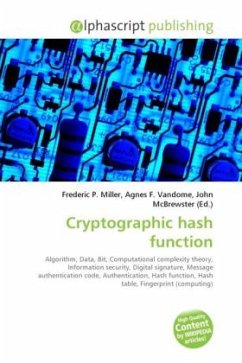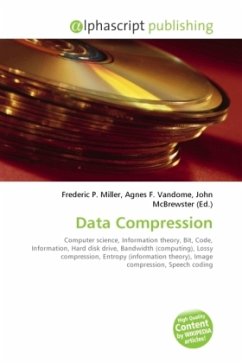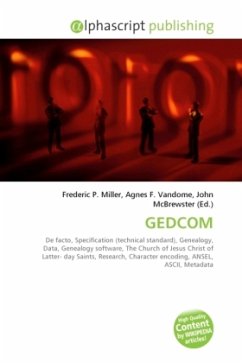
Cryptographic hash function
Versandkostenfrei!
Versandfertig in 6-10 Tagen
26,99 €
inkl. MwSt.

PAYBACK Punkte
13 °P sammeln!
High Quality Content by WIKIPEDIA articles! A cryptographic hash function is a deterministic procedure that takes an arbitrary block of data and returns a fixed-size bit string, the (cryptographic) hash value, such that an accidental or intentional change to the data will change the hash value. The data to be encoded is often called the "message", and the hash value is sometimes called the message digest or simply digest. The ideal cryptographic hash function has four main properties: it is easy to compute the hash value for any given message, it is infeasible to find a message that has a give...
High Quality Content by WIKIPEDIA articles! A cryptographic hash function is a deterministic procedure that takes an arbitrary block of data and returns a fixed-size bit string, the (cryptographic) hash value, such that an accidental or intentional change to the data will change the hash value. The data to be encoded is often called the "message", and the hash value is sometimes called the message digest or simply digest. The ideal cryptographic hash function has four main properties: it is easy to compute the hash value for any given message, it is infeasible to find a message that has a given hash, it is infeasible to modify a message without changing its hash, it is infeasible to find two different messages with the same hash. Cryptographic hash functions have many information security applications, notably in digital signatures, message authentication codes (MACs), and other forms of authentication. They can also be used as ordinary hash functions, to index data in hash tables; as fingerprints, to detect duplicate data or uniquely identify files; or as checksums to detect accidental data corruption.












